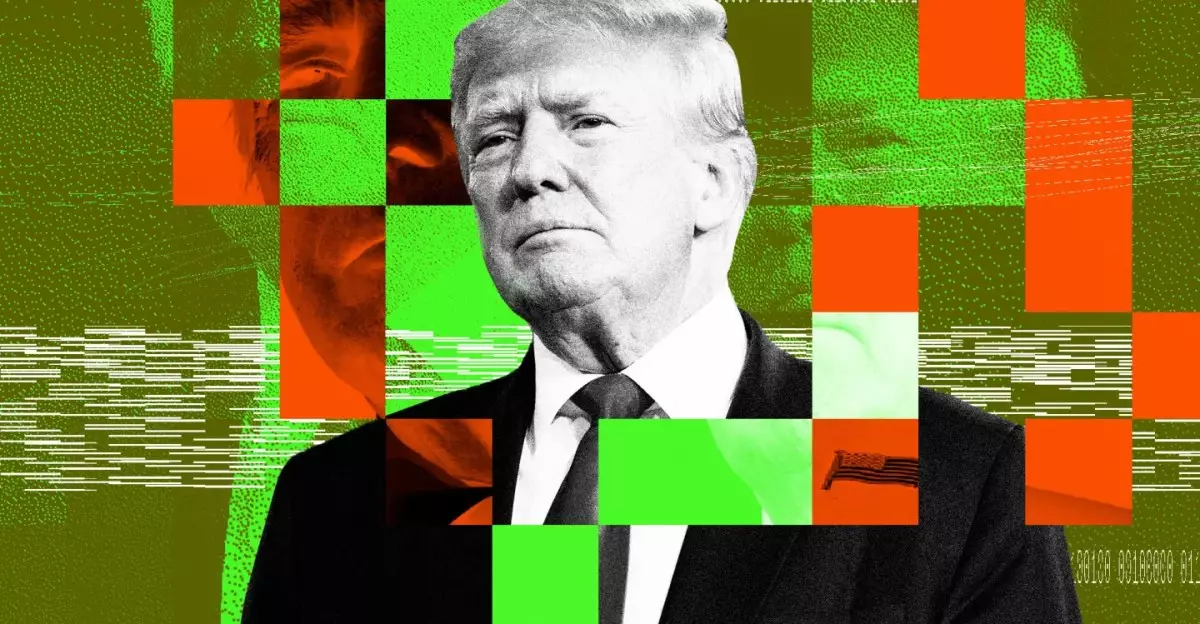The recent suspension of student visa interviews by the State Department has thrown countless aspiring scholars into a state of uncertainty. This suspension is more than a bureaucratic delay; it represents a significant and concerning shift in how the U.S. views its relationship with international students. Students waiting for their visa approvals—especially those from sensitive regions like Iran—must confront a precarious limbo that could cost them critical academic opportunities and adversely affect America’s standing as a global leader in education.
Legal Battle Caught in Political Crossfire
At the heart of this issue lies a lawsuit filed by fifteen Iranian students against the Trump administration. They argue that the full halt of visa interviews is unlawful under the Administrative Procedures Act, designed to prevent arbitrary governance. The implications of this legal challenge are profound. It reveals how national security concerns are increasingly being conflated with immigration policy, thereby jeopardizing the academic pursuits of individuals who do not warrant such scrutiny based on their ambitions or backgrounds. This is not merely a legal issue; it’s an ethical one that questions the values we uphold in the name of security.
Twisted Vetting Processes
Under scrutiny, the State Department’s requirement for visa applicants to disclose their social media handles raises eyebrows. Critics argue that this invasive approach not only targets specific demographics—especially from Muslim-majority countries—but also creates an environment of fear among potential scholars. Curtis Morrison and Hamdi Masri, the students’ attorneys, have articulated a sentiment that many share: the increasing politicization of educational institutions in America. It appears the administration wants to create a homogenized educational environment that aligns with its political agenda, barring those who could enrich U.S. academic discussion through diversity of thought and experience.
Affecting Global Talents and American Interests
This situation is facilitated by ongoing actions that threaten to further alienate international students from the U.S. academic system. With phrases like “aggressively revoke visas” becoming common, the administration appears intent on not just delegitimizing particular student groups, but also fundamentally altering the traditional influx of talent into U.S. universities. Institutions like Yale and Harvard may become less attractive to brilliant minds simply because of their nationality or political beliefs, thus undermining the foundational ethos of these institutions as places for free thought and diverse perspectives.
The educational system thrives on innovation, collaboration, and the exchange of ideas. By stifling access for many international students, the U.S. risks not just the loss of potential contributions to commerce and technology but also a diminishing reputation as a leader in global education. The long-term consequences could be far-reaching—not just for those currently waiting for their visas but for the broader landscape of American intellectual growth and cultural exchange.
The Narrows of Academic Opportunity
As these students navigate the murky waters of bureaucratic red tape, their situation exemplifies a troubling trend: the increasing weaponization of immigration policies against individuals merely seeking to expand their horizons through education. With the legal landscape in flux and the visa processes clouded by political agendas, the doors to American universities risk closing permanently to some of the most promising minds in the world. The ramifications extend beyond the individual, questioning the very fabric of our commitment to education, diversity, and the pursuit of knowledge.

